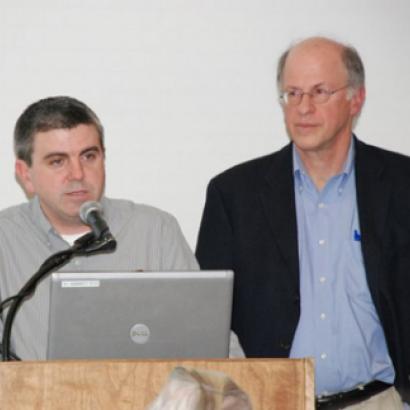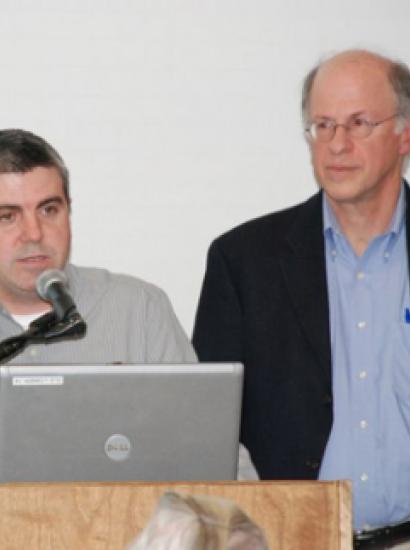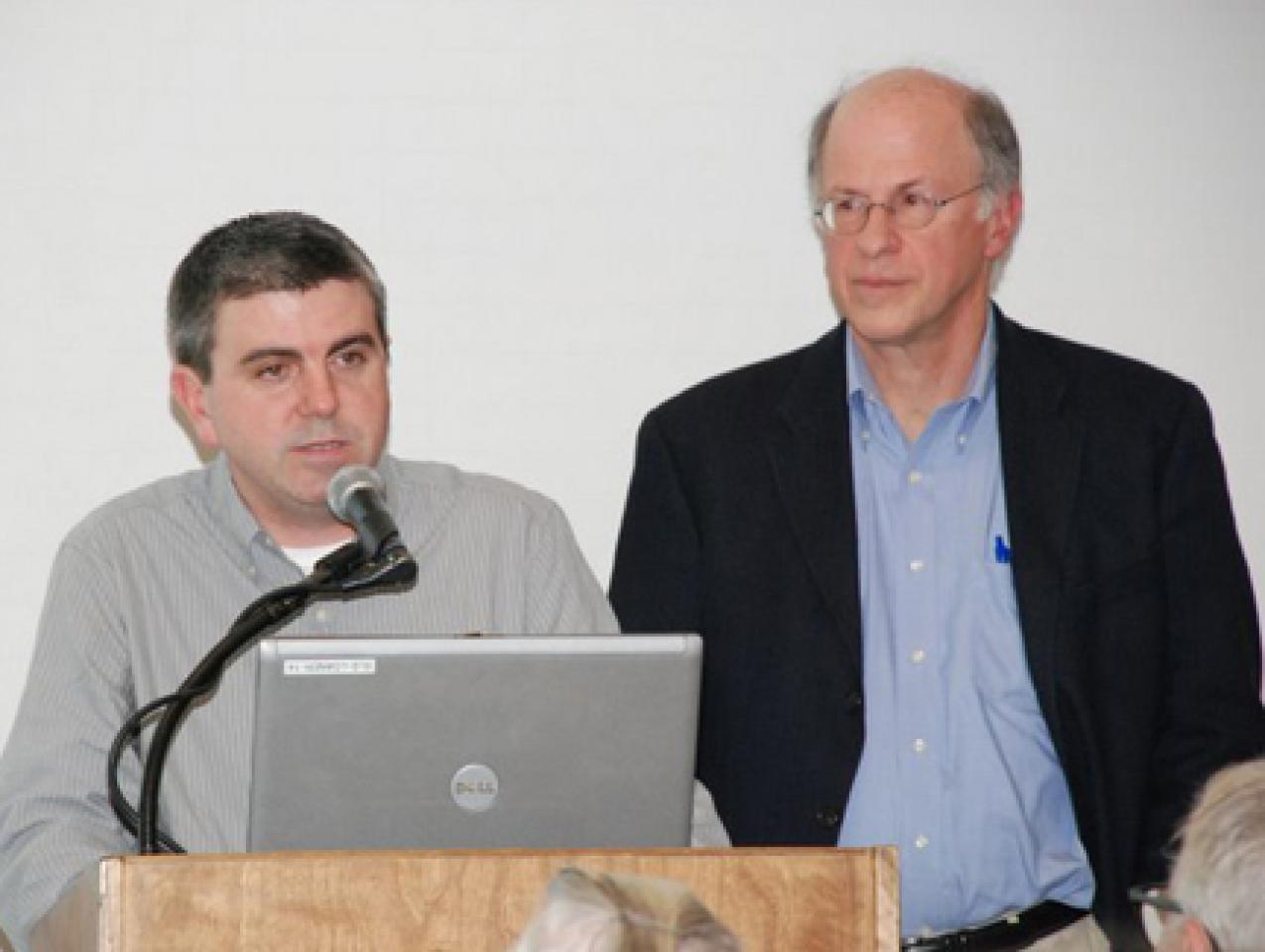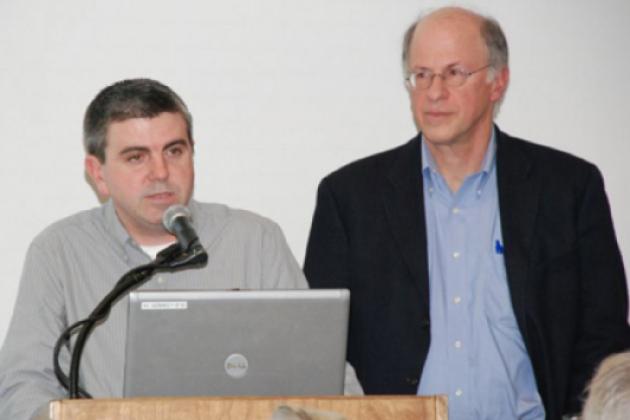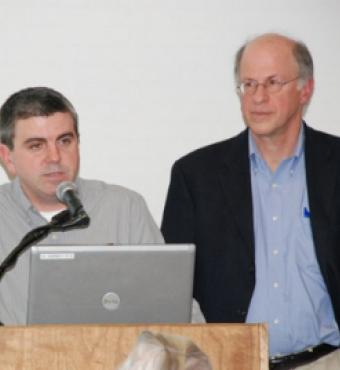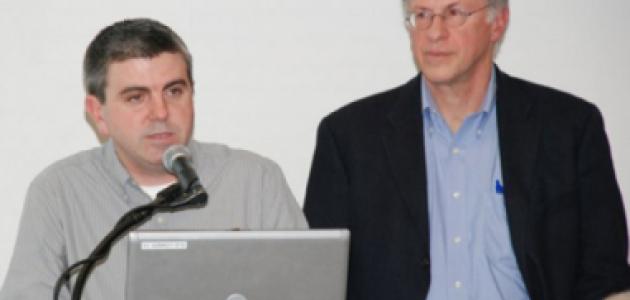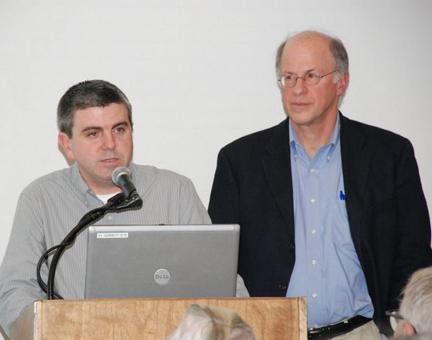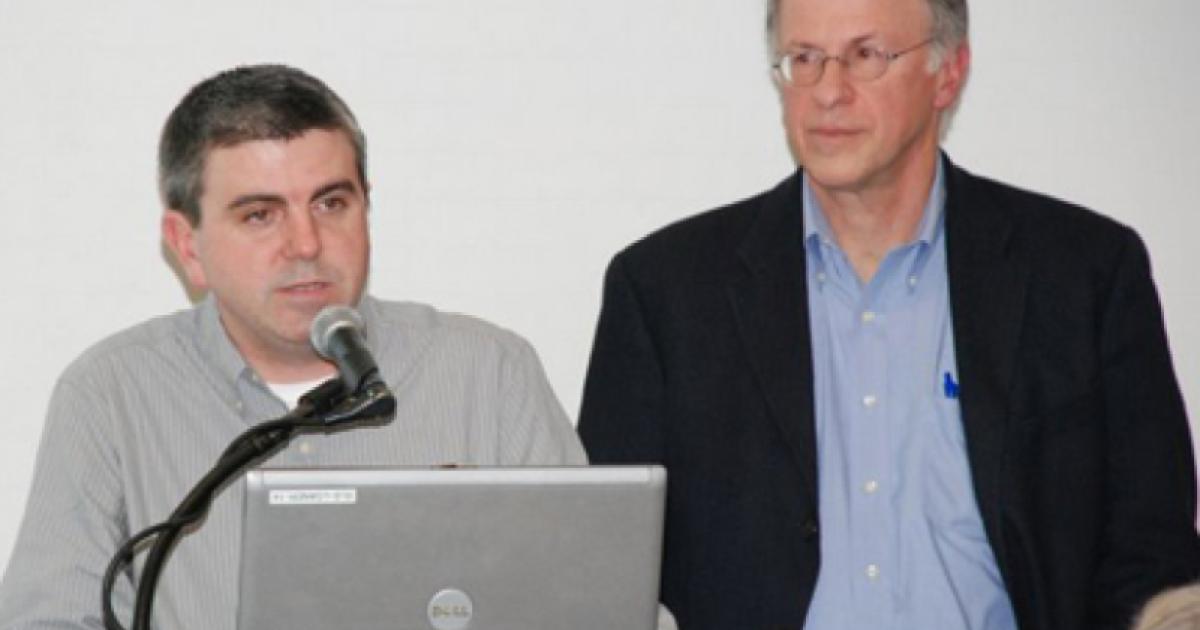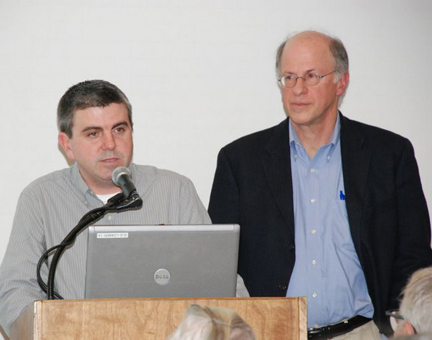
STANFORD—The media coverage of the recent presidential campaign was reviewed by Washington Post staff writer Paul Kane, congressional correspondent, and Eric Pianin, reporter and editor, in their presentation “2008 Lessons Learned on the Campaign Trail and What Lies Ahead for the Obama Agenda on Capitol Hill” on Monday, December 1.
Listen to ![]() Paul Kane and Eric Pianin’s talk (31:33)
Paul Kane and Eric Pianin’s talk (31:33)
In his remarks, Pianin raised the question of a perpetual election cycle and the role of the media in it. He noted that positioning for the 2012 presidential election has already begun, with some in the media speculating on possible Republican challengers to President-elect Barack Obama. Pianin pointed out that an early survey of the 2008 Democratic nominees for president predicted it would be Senator Hilary Clinton. He believes that “seat of pants” speculation drives the media. “The media do good work but are more often wrong than I care to admit,” Pianin said.
In discussing the campaigns of the presidential candidates, Kane noted the Internet expertise of the Obama camp. “The online fund-raising for Obama’s campaign raised more money than the Chamber of Commerce and unions combined,” Kane said. He also pointed out that those online campaign donors are now part of a membership database that is accessible by the president-elect. Obama’s campaign “built a coalition” and in the future can go around the media to reach its members, he added.
On Senator John McCain’s campaign, Pianin said that many in the media viewed it as disorganized and predicted that it was over by summer 2007. McCain, however, had turned it around by early 2008, when he found his voice and began touring the country, Pianin said.
The William and Barbara Edwards Media Fellow Program of the Hoover Institution sponsored the event. The Edwards Media Fellows Program allows print and broadcast media professionals to spend time in residence at the Hoover Institution. Media fellows have the opportunity to exchange information and perspectives with Hoover scholars through seminars and informal meetings and with the Hoover and Stanford communities in public lectures. As fellows, they have the full range of research tools Hoover offers available to them. More than 400 of the nation's top journalists have participated and interacted with Hoover fellows on key public policy issues.







